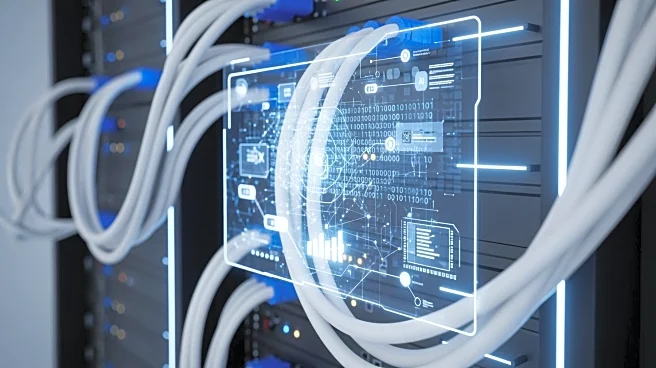What's Happening?
Marjorie Taylor Greene, a Republican representative from Georgia, has expressed her views on the government shutdown, highlighting what she perceives as a positive outcome: the cessation of taxpayer-funded weather modification experiments. Greene announced
her Clear Skies Act, which aims to ban geoengineering and weather modification practices, claiming these activities involve spraying chemicals into the atmosphere. Despite Greene's assertions, U.S. agencies, including the Environmental Protection Agency, have stated they are not involved in large-scale weather modification experiments. Greene's comments reflect a broader conspiracy theory that suggests weather modification is responsible for natural disasters and is linked to airplane exhaust trails.
Why It's Important?
Greene's stance on weather modification taps into a wider debate about the role of government in scientific research and environmental intervention. Her claims, although not supported by federal agencies, resonate with certain groups concerned about environmental manipulation and government transparency. The controversy underscores the tension between scientific consensus and public skepticism, potentially influencing public policy and funding for environmental research. Greene's proposal could impact future legislative discussions on environmental practices and government accountability.
What's Next?
If Greene's Clear Skies Act gains traction, it could lead to legislative debates on the regulation of geoengineering and weather modification. The act may prompt further investigation into existing research practices and their implications for environmental policy. Stakeholders, including environmental groups and scientific communities, may respond by advocating for or against the proposed legislation, influencing its potential passage and implementation.
Beyond the Headlines
The discourse surrounding weather modification raises ethical questions about human intervention in natural processes. It also highlights the challenge of balancing scientific innovation with public concerns about environmental impact and government oversight. The debate may contribute to broader discussions on climate change and the role of technology in addressing environmental issues.















